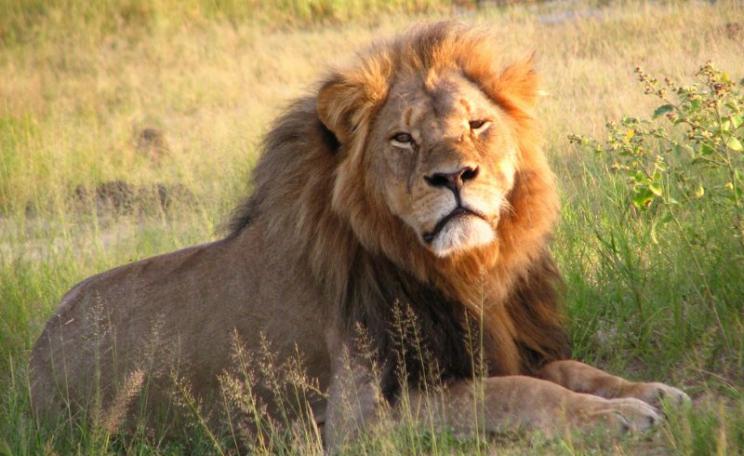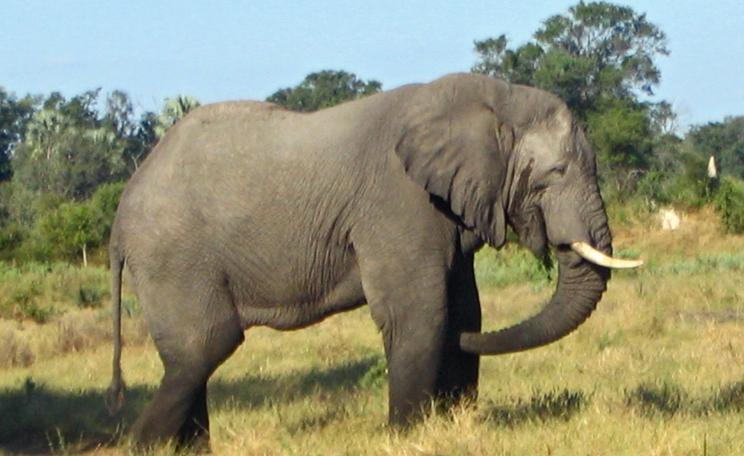-
Philda Kereng, Botswana's minister of Environment, Natural Resources Conservation and Tourism, wrote to the United Kingdom’s Department of Environment, Food and Rural Affairs (Defra) a full week after the deadline for public submissions on whether the UK should ban trophy imports
Kereng expressed her “discomfort” over how the UK is handling the matter. The consultation process was initiated on 2 November 2019 and involved a considered “call for evidence on the scale and impacts of the import and export of hunting trophies.”
Kereng rightly states that “Defra’s position on this matter should be based on the best available scientific evidence and information.” Refreshingly, her government “stands ready to provide Defra with significant and accurate evidence” that demonstrates “the importance of hunting as a conservation strategy.”
Livelihood
But such evidence is as yet not publicly available or forthcoming, and stands in stark contrast to the growing global evidence that shows trophy hunting to be a short-term strategy with significant long-term costs.
Consider, for instance, a paper published in Cogent Social Sciences, which Israel Blackie argued that: “The livelihoods that benefit from wildlife hunting safaris were never sustainable in the long term. The wildlife hunting practice under the then joint venture partnership (JVP) model had created dependency among local communities who were subsisted by providing cheap labour in professional hunting companies."
Clearly, the hunting moratorium, imposed in early 2014, resulted in some livelihood benefit losses. But the ‘benefits’ from hunting are, nonetheless, not sustainable in the long run.
Second, while Blackie argues for hunting ‘problem animals’ such as elephant and buffalo to increase frustration tolerance for human and wildlife conflict (a very shaky argument, in my view), it speaks directly to the Botswana government’s “commitment to manage and conserve its wildlife and provide livelihood support benefits to impoverished communities.”
Minister Kereng insists that “communities were stripped of livelihood benefits including cash, infrastructure and game meat following the hunting moratorium.” But throwing a bit of elephant meat and some tracking or skinning jobs to local communities is not sustainable; it’s insulting.
No plan exists to show how community trusts will be reconstituted to ensure an equitable distribution of hunting revenue to community members.
Extraction
Mucha Mkono notes that trophy hunting perpetuates a colonial extraction mentality. Attempting to justify a morally problematic activity on the grounds that it produces economic benefits ignores the question of who is carrying out the activity and who might benefit disproportionately.
As Mike Cadman explains: “The hunting packages were bought by a few wealthy and well-connected individuals who had run hunting operations in Botswana prior to the moratorium.”
Trophy hunting is also likely to have unintended consequences such as increased aggression due to the elimination of older bulls, which are in turn the very bulls that photographers pay top dollar to shoot.
Minister Kereng states that the government decided to reintroduce the practice after a “nationwide, democratic and (sic) consultation with the affected stakeholders”, but the findings have still not been written up in any scientifically robust way. For instance, it is not clear what methodology was employed, how the sample was stratified to ensure representativity, or how the data was then verified for accuracy.
We know, however, that the consultation occurred during the peak of the tourism season in 2019 (ahead of elections) when many community members were not available to be consulted. Interestingly, communities in Ngamiland voted overwhelmingly for the opposition Umbrella for Democratic Change, which opposes hunting.
But let us grant the minister that a consensus nonetheless existed; the fact remains that trophy hunting is not a long-term solution to Botswana’s conservation and tourism interests.
Capacity
Beyond this, the minister’s assertions bear little resemblance to the truth.
First, the idea that Botswana’s elephant population of 130,000 exceeds the country’s “carrying capacity of 50,000” has no scientific basis. The concept has no relevance in an open, dynamic ecological system such as Botswana’s.
Uneven, regenerative landscape impact through elephant seed dispersal and ecosystem engineering should be ecologically encouraged. But the government nonetheless repeats ad nauseum that “the number [of elephants] and high levels of human-elephant conflict [HEC] and the consequent impact on livelihoods was increasing.”
But Botswana’s own Department of Wildlife and National Parks has estimated elephant numbers at around 130,000 since 2001, and HEC was prevalent long before the 2013 moratorium.
Science
Second, Minister Kereng contends that “controlled hunting is “a tolerance building mechanism for communities in marginal lands living amongst destructive wildlife such as elephants.” This demonstrates a severe lack of understanding of the causal factors driving HEC.
At the root of the problem is water scarcity, exacerbated by climate change. The human population is competing with elephants for scarce resources. To argue that a bit of elephant meat and some colonial jobs will compensate for crop-raiding and the occasional death of loved ones is naïve in the extreme, given that elephants tend to respond to trauma induced by the loss of herd members (through trophy hunting or poaching) by becoming more aggressive towards people. This negatively affects communities living with elephants as well as the wildlife watching tourism industry.
Finally, Botswana has purportedly “developed a scientific and sustainable hunting framework … based on the best available scientific evidence”. This is laughable, along with the idea that controlled hunting will somehow “enhance the survival of hunted species in the wild”.
Shooting bull elephants (who are increasingly reproductively fit over a natural lifespan) undermines herd functionality and long-run survival probability. Shooting prime male lions similarly induces infanticide, hardly enhancing species survival likelihood (yes, prime males get shot instead of ‘surplus’ males because hunters select the best not the weakest).
Setting a quota for 2020 for 272 bull elephants to be shot has no basis in science. The random allocation across concessions is less an exercise in science (it does not account for density or dispersal) than in extracting rents. A
scientific framework would provide evidence, for instance, that shooting older elephant bulls in NG2,4,5 and 8 will not negatively impact that unique elephant population, or that shooting bulls in NG41 will not wipe out the last of the big tuskers, or that resuming hunting in the Tuli Block will not ignore the science produced just before the ban which showed hunting to be unsustainable in that area. Plucking numbers from thin air is not science, it’s gambling.
Strategy
Beyond science, serious governance questions arise: No concession holder exists for CT2 – a large hunting area southeast of Chobe national park – and yet an elephant hunting package for ten elephants will be auctioned off later this year for that very concession.
Professor Mbaiwa, who long advocated a return to hunting, is now a shareholder with hunter Jeffrey Rann in a new joint venture. Corruption evidently abounded before the moratorium and looks set to take off again.
The Botswana government is gambling its heritage away and hoping like hell that some of the resultant meat and skinning jobs will keep poor, rural Batswana satisfied. Dressing this up as ‘science’ and telling Defra that it’s “incomprehensible that the UK would seek to undermine our conservation strategy” looks more like a line out of the hunting propaganda handbook than conservation policy.
This Author
Ross Harvey is a freelance economist who works with The Conservation Action Trust and the EMS Foundation in South Africa.






